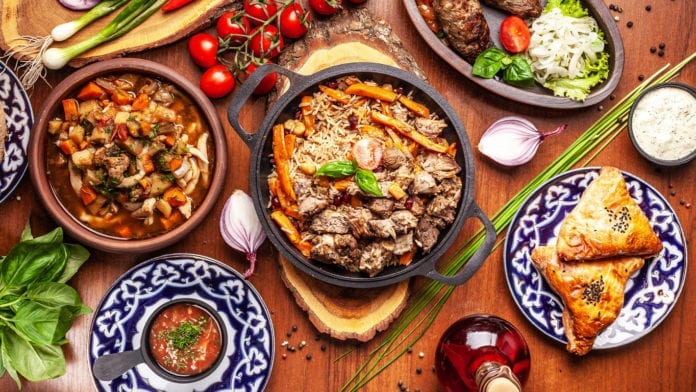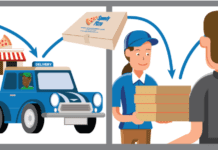One of the most beautiful things about living in Canada is how inclusive our society is. People of many faiths and races from all around the world flock here to live in peace and harmony; and for all our differences, there are a few things that unite us. Food is a universal example.
“You are what you eat” has never been truer than it is today
For an increasing number of people, what they eat is incredibly important to them; it has to fit with their beliefs and their lifestyle, and for some, it defines who they are. For vegetarians and vegans, that means avoiding meat. Some will choose only organic foods to protect the environment, for others, food must meet their spiritual requirements. Perhaps the best-known example of this last category is kosher food, food which has been deemed appropriate for those of the Jewish faith to consume. Less well known, but perhaps in even higher demand, is halal food.
“Halal” is an Arabic word meaning “permissible.” It is used by Muslims to define anything they are allowed to eat, drink, wear, or do according to the teachings of the Quran, the holy scripture of the Islamic faith. To be halal, food must be prepared in strict accordance with a set of regulations, and it isn’t always easy to tell what is and what is not halal. While some people are aware Muslims won’t eat pork or drink alcohol, there’s a lot more to being halal than simply eliminating those things.
Far from a niche market, the Muslim demographic is expanding rapidly. Currently, around 3 per cent of Canada’s population are Muslims, according to a study by the Pew Research Center. By 2030, that number will be 6.6 per cent, meaning there will be more than 2.5 million Muslims in Canada, mainly concentrated in the major urban centers. For comparison, only about 1 per cent of Canadians identify as Jewish.
What makes food halal?
In order for food to be halal, a certifying body must give its seal of approval. This means the entire process has to meet the requirements of Muslim tenets, as observed by the certifier. For example, livestock must be ethically-raised and slaughtered in a prescribed fashion. From there, halal meat has to be kept separate from non-halal meat. To claim to be halal, federal law requires certification. There are many certifying agencies in Canada and the best of them help to teach businesses about halal and monitor the entire process at all times.
Because Muslims choose to adhere to the rules of halal, it can be difficult for them to go out for food, something most Canadians take for granted. So, think about this — there’s a large group of people, they’re leading successful lives, earning good livings and raising families, and they’re looking for somewhere to eat. Why can’t that be your restaurant?
Becoming a halal-certified operation
There’s more to becoming a halal restaurant than just buying and serving halal-certified products, though that is a start. To attract the Muslim consumer, your restaurant or foodservice business must also be halal-certified. This certification is your way of saying to the community, “We want you here, we have done our due diligence, and you can trust us.”
To gain certification, be prepared to do some work, be ready to learn, and be open to partnering with the experts. Generally speaking, you’ll need to make an application to the certifier and arrange for an audit of your business. Most likely, you’ll be asked to supply the certifier with information ahead of time including spec sheets or ingredients lists for all food and beverage products used. Based on the results of the audit, you’ll receive recommendations on how to adjust your processes to accommodate Muslim consumers.
That could mean anything from changing where you source your ingredients to certified halal suppliers and producers, to how you store and prepare them. As an example, if you’re planning to serve both halal and non-halal meat dishes, the two different types of meat must never come in contact with one another. This may mean separate storage, prep space, and utensils.
A halal restaurant is open to everyone
What it does not have to mean is a wholesale change to your menu. Muslim Canadians like to eat the same foods as their non-Muslim friends; they love Italian, Greek, steak – all of the things that are so readily available to mainstream diners. Remember, too, that being halal-inclusive doesn’t mean being exclusive of anyone else. Halal food can be eaten and enjoyed by all, and having your certification will allow Muslims to dine alongside their non-Muslim friends. Try looking for opportunities within your existing repertoire to tweak dishes and make them halal. This is something your certifier should be able to help with.
Once you feel your operation is ready, the certifier will return and assess your results. Factors looked for will include not only the use of halal ingredients, preparation and cooking processes, but also adherence to health and hygiene laws, honesty, and virtuous conduct. If all the requirements for halal certification have been met, you’ll receive your designation.
For the potential return on investment, obtaining halal certification may be surprisingly cost-effective. And with the way this demographic is growing and with the spending power they represent, it just makes sense. Display your certification proudly and let the Muslim community know you’re open for their business.





















